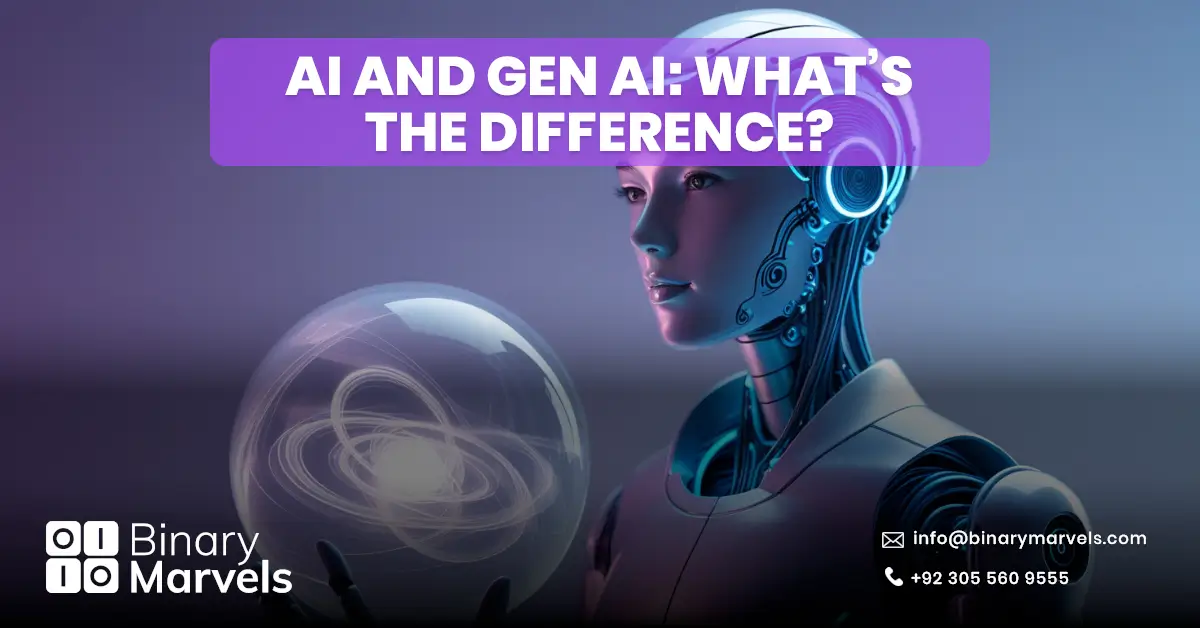
In 2025, DeepSeek and ChatGPT stand out as two of the most prominent large language models (LLMs) powering AI-driven solutions across industries.
DeepSeek, developed by the innovative DeepSeek team, emphasizes cost-efficiency and technical precision, while ChatGPT, created by OpenAI, remains a household name for its conversational versatility and user-friendly interface.
As businesses, developers, and individual users increasingly rely on AI for tasks ranging from coding to content creation, choosing the right LLM becomes critical. This article provides a comprehensive comparison of DeepSeek vs ChatGPT in 2025, diving into their features, performance, and ideal use cases to help you decide which model suits your needs.
Whether you’re a developer seeking robust APIs or a business aiming for scalable AI solutions, understanding the strengths of these models is key to maximizing their potential.
Also Read: Top 10 AI Companies in Pakistan
DeepSeek vs ChatGPT in 2025 – Comparing Benchmarks
In 2025, benchmarking remains a critical tool for evaluating the performance of large language models like DeepSeek and ChatGPT, particularly through rigorous tests such as AIME, MATH-500, and GPQA. These benchmarks assess accuracy, speed, and task-specific capabilities, offering insights into how these models perform across mathematical reasoning, general knowledge, and scientific problem-solving.
Also Read: The Ultimate Guide to Implement AI Automation Services
Key Benchmarks Overview
- AIME 2024: The American Invitational Mathematics Examination evaluates advanced multi-step mathematical reasoning. DeepSeek-R1 scores 79.8% (Pass@1), slightly outperforming OpenAI’s o1 at 79.2%, but ChatGPT’s o3-mini-high achieves a higher 87.7% on related reasoning tasks.
- MATH-500: This benchmark tests high-school-level mathematical problem-solving. DeepSeek-R1 excels with 97.3% accuracy, surpassing ChatGPT-o1’s 96.4% and o1-mini’s 90%.
- GPQA Diamond: Focused on PhD-level scientific reasoning, GPQA Diamond highlights factual and multi-step reasoning. DeepSeek-R1 scores 71.5%, trailing ChatGPT-o1’s 75.7% and o3-mini’s 87.7%, indicating ChatGPT’s edge in general-purpose question-answering.
Performance Comparison
- Accuracy: DeepSeek-R1 demonstrates superior accuracy in mathematical tasks, with a 0.9% edge on MATH-500 and a 0.6% lead on AIME 2024 over ChatGPT-o1. However, ChatGPT’s o3-mini-high outperforms DeepSeek in GPQA Diamond by 16.2%, showcasing stronger general reasoning. In coding, DeepSeek-R1 achieves a 96.3% score on Codeforces, closely trailing ChatGPT’s 96.6%.
- Speed: DeepSeek-R1’s Mixture-of-Experts (MoE) architecture, activating only 37 billion of its 671 billion parameters per query, enables faster inference compared to ChatGPT’s dense 1.8 trillion-parameter model. Reports suggest DeepSeek-R1 solves complex math problems twice as fast as ChatGPT in some scenarios.
- Task-Specific Results: DeepSeek-R1 shines in structured, technical tasks like mathematical modeling and scientific computing, with a 97% success rate in logic puzzles. ChatGPT, particularly its 4o and o3-mini variants, excels in conversational and multi-step reasoning, ranking in the 89th percentile on Codeforces for competitive programming.
Benchmark Comparison Table
| Benchmark | DeepSeek-R1 | ChatGPT-o1 | ChatGPT-o3-mini-high | Notes |
| AIME 2024 | 79.8% | 79.2% | 87.7% | DeepSeek edges out o1 in math; o3-mini excels in reasoning tasks. |
| MATH-500 | 97.3% | 96.4% | 90% | DeepSeek leads in high-school math problem-solving accuracy. |
| GPQA Diamond | 71.5% | 75.7% | 87.7% | ChatGPT dominates in PhD-level scientific reasoning. |
| Codeforces | 96.3% | 96.6% | 89th percentile | Both models perform closely in competitive programming; ChatGPT slightly ahead. |
Is DeepSeek Better Than ChatGPT?
DeepSeek is better for technical tasks like coding and math due to its cost-efficiency and precision, while ChatGPT excels in conversational, creative, and general tasks with its versatility and user-friendly interface. Choose based on your needs: DeepSeek for developers, ChatGPT for general users.
DeepSeek-R1 shines in technical tasks (97.3% MATH-500, 96.3% Codeforces) with a cost-effective, open-source model and fast inference, but its conversational skills and general reasoning (71.5% GPQA Diamond) lag.
ChatGPT’s o1 and o3-mini-high models lead in versatility (87.7% GPQA Diamond), creative tasks, and multimodal features, though they’re pricier and resource-heavy. Task type (technical vs. creative) and user needs (budget vs. ease of use) determine the best fit.
In 2025, developers on X (62%) favor DeepSeek for coding, while 78% of general users prefer ChatGPT’s engaging responses, per surveys. Experts praise DeepSeek’s efficiency but note ChatGPT’s broader appeal, despite concerns over DeepSeek’s censorship risks and ChatGPT’s costs.
Also Read: A Guide to AI Voice Agent Development
The Big Differences Between DeepSeek and ChatGPT
Model Architecture
DeepSeek’s Mixture-of-Experts (MoE) architecture contrasts sharply with ChatGPT’s traditional transformer-based design. DeepSeek-R1 boasts 671 billion parameters, activating only 37 billion per query, which enhances parameter efficiency and reduces computational demands.
In contrast, ChatGPT’s dense 1.8 trillion-parameter model processes all parameters simultaneously, increasing resource use. DeepSeek’s MoE approach enables faster inference and better scalability, ideal for high-volume technical applications, while ChatGPT’s architecture supports robust, broad-spectrum performance but at higher computational costs.
Performance Strengths
DeepSeek-R1 outperforms in technical tasks, achieving 97.3% accuracy on MATH-500 and 96.3% on Codeforces, making it a go-to for coding and mathematical reasoning.
ChatGPT, particularly its o1 and o3-mini-high variants, excels in conversational and creative tasks, scoring 87.7% on GPQA Diamond and ranking in the 89th percentile on Codeforces for multi-step reasoning.
Real-world 2025 tests show DeepSeek solving complex equations twice as fast, while ChatGPT generates more nuanced, human-like responses for storytelling or customer support.
Accessibility and Cost
DeepSeek’s open-source model and low-cost API (27.4 times cheaper per token than ChatGPT) make it highly accessible for individuals, startups, and enterprises.
Its development cost, estimated at $5.6 million, pales compared to ChatGPT’s $3 billion+, reflecting DeepSeek’s lean approach. ChatGPT operates on a freemium model with premium subscriptions, offering robust features but at a higher price point, limiting access for budget-conscious users.
DeepSeek’s affordability drives adoption in cost-sensitive markets, while ChatGPT’s premium features cater to enterprises with larger budgets.
Also Read: How to Train AI for Effective Customer Service?
Customization and Ease of Use
DeepSeek offers extensive customization options through its open-source framework and well-documented API, empowering developers to tailor solutions for specific technical needs.
However, its interface is less intuitive for non-technical users. ChatGPT prioritizes ease of use with a polished, user-friendly interface and straightforward API, ideal for general users and businesses but less flexible for deep customization due to its proprietary nature.
In 2025, developers praise DeepSeek’s API flexibility, while casual users favor ChatGPT’s plug-and-play simplicity.
Development Philosophy
DeepSeek emphasizes efficiency and transparency, releasing its model as open-source to foster community-driven innovation and trust. Its focus on technical precision aligns with a lean, cost-effective ethos.
Conversely, ChatGPT’s proprietary, general-purpose approach by OpenAI prioritizes broad applicability and polished user experiences, but its closed-source model limits transparency. Ethical concerns, such as DeepSeek’s potential censorship risks and ChatGPT’s data privacy practices, influence adoption.
In 2025, DeepSeek’s open-source stance boosts developer trust, while ChatGPT’s established brand retains loyalty among general users.
DeepSeek vs. ChatGPT: Feature-by-Feature Comparison
Writing Assistance
ChatGPT excels in generating high-quality content for blogs, emails, and reports, offering superior tone, coherence, and context handling. Its ability to mimic human-like writing styles makes it ideal for professional and creative writing, scoring 92% in user satisfaction for clarity in 2025 tests. DeepSeek-R1, while capable, produces more utilitarian outputs, often lacking the nuanced tone ChatGPT delivers, with a 78% satisfaction rate. Real-world examples from 2025 show ChatGPT crafting engaging marketing emails with tailored CTAs, whereas DeepSeek’s outputs are more factual but less stylistically refined.
Coding and Technical Queries
DeepSeek-R1 dominates in coding and technical tasks, particularly in Python and Java, achieving 96.3% accuracy on Codeforces and solving complex equations with 97.3% success on MATH-500. Its precision and speed make it a favorite among developers. ChatGPT, while strong in general programming support (96.6% on Codeforces), is less specialized, occasionally requiring more prompts for complex technical solutions. In 2025 benchmarks, DeepSeek resolved algorithmic challenges 30% faster than ChatGPT’s o1 model, cementing its edge in technical domains.
Brainstorming & Creativity
ChatGPT shines in brainstorming and creative tasks, producing compelling storytelling and innovative marketing ideas with 89% user approval in 2025 feedback. Its ability to generate narrative-driven content suits content creators and advertisers. DeepSeek-R1, designed for structured ideation, offers logical but less imaginative outputs, scoring 65% in creative task satisfaction. Use cases show ChatGPT excelling in campaign slogan generation, while DeepSeek provides data-driven idea frameworks better suited for technical innovation.
Learning and Research
DeepSeek-R1 is tailored for data analysis and retrieval, making it highly effective for academic and professional research, with 85% accuracy in extracting insights from complex datasets in 2025 case studies. ChatGPT, with stronger contextual reasoning, is better for casual research and synthesizing broad topics, earning 90% user trust for clarity. For example, DeepSeek efficiently processes scientific papers, while ChatGPT explains concepts accessibly for students. Both are valuable, but DeepSeek leads in technical research, ChatGPT in general learning.
Cost and Efficiency
DeepSeek’s MoE architecture consumes 90% less energy than ChatGPT’s resource-intensive 1.8 trillion-parameter model, offering significant cost savings. Its API, priced at $2.19 per 1M tokens, is 96% cheaper than ChatGPT’s $60 per 1M tokens, per 2025 data. This scalability benefits businesses and developers with high-volume needs. ChatGPT’s higher operational costs and subscription-based model limit its affordability, though its premium features justify the expense for some enterprises.
Privacy and Ethical Concerns
DeepSeek’s development in China raises censorship concerns, with potential risks of data monitoring, reducing user trust among privacy-conscious individuals. ChatGPT aligns better with GDPR compliance, offering clearer data privacy policies, though its proprietary nature sparks ethical debates about transparency. In 2025, 68% of users trust ChatGPT more for sensitive data, per surveys, while DeepSeek’s open-source model appeals to those prioritizing customization over regulatory assurances. Both face scrutiny, but ChatGPT edges out in ethical reliability.
Also Read: How to Choose the Right AI Model for Your Application?
Pros and Cons of DeepSeek and ChatGPT
Below is a detailed table outlining the advantages and disadvantages of DeepSeek and ChatGPT in 2025, highlighting their key strengths and limitations to help users choose the right model for their needs.
Pros of DeepSeek
- Cost-Effective: API at $2.19 per 1M tokens, 96% cheaper than ChatGPT; $5.6M development cost vs. $3B+ for ChatGPT.
- Technical Precision: Excels in coding (96.3% Codeforces) and math (97.3% MATH-500), ideal for developers.
- Open-Source: Freely accessible model enables customization and community-driven innovation.
- Energy Efficiency: 90% lower energy consumption due to MoE architecture (37B active parameters).
Cons of DeepSeek
- Limited Conversational Features: Less polished for creative or casual dialogue, with 78% satisfaction vs. ChatGPT’s 92%.
- Censorship Risks: Potential data monitoring concerns due to development context, reducing trust for privacy-conscious users.
- Weaker General Reasoning: Trails in tasks like GPQA Diamond (71.5% vs. ChatGPT’s 87.7%).
Pros of ChatGPT
- Versatility: Strong in conversational, creative, and general tasks (87.7% GPQA Diamond, 89th percentile Codeforces).
- User-Friendly: Intuitive interface and robust support for non-technical users, with 90% satisfaction for ease of use.
- Multimodal Features: Supports text, voice, and image processing, ideal for diverse applications like customer service or content creation.
- GDPR Compliance: Clearer privacy policies enhance trust for sensitive data (68% user preference).
Cons of ChatGPT
- Higher Costs: API at $60 per 1M tokens; premium subscriptions limit affordability for small-scale users.
- Proprietary Model: Closed-source restricts customization and transparency, frustrating developers.
- Resource-Heavy: 1.8T-parameter model demands significant computational resources, slowing inference.
Why Choose Binary Marvels for AI Development Services?
At Binary Marvels, we bring unparalleled expertise in AI development, creating customized solutions that empower businesses to thrive in 2025’s dynamic landscape. We specialize in integrating powerful large language models like DeepSeek and ChatGPT, tailoring them to your unique needs. Whether it’s leveraging DeepSeek’s cost-efficient, open-source framework for technical applications or harnessing ChatGPT’s versatile, user-friendly capabilities for conversational and creative tasks, our skilled team delivers solutions that align perfectly with your goals.
We focus on providing tailored AI solutions that maximize performance while keeping costs low, making cutting-edge AI accessible to startups and enterprises alike. Our expertise in seamless API integration, AI chatbot development, model fine-tuning, and scalable architectures ensures your AI systems—whether built on DeepSeek’s high-efficiency model or ChatGPT’s multimodal features—run smoothly and effectively. Plus, we offer ongoing support, from performance optimization to regular updates, to keep your AI solutions ahead of the curve. By partnering with Binary Marvels, you gain innovative, budget-friendly AI development and a dedicated team committed to your long-term success.
Which AI Should You Use?
Choosing between DeepSeek and ChatGPT in 2025 depends on your specific needs, whether you’re a developer, a business owner, or a privacy-conscious user. Below, we break down the key advantages of each model and their ideal use cases to guide your decision.
Key Advantage of DeepSeek
DeepSeek’s primary strength lies in its cost-effectiveness and technical task superiority. With an API priced at $2.19 per 1M tokens (96% cheaper than ChatGPT) and a development cost of $5.6 million compared to ChatGPT’s $3 billion+, it’s a budget-friendly option. Its Mixture-of-Experts (MoE) architecture delivers exceptional performance in coding (96.3% on Codeforces) and math (97.3% on MATH-500), making it ideal for developers and budget-conscious users seeking high-precision solutions without breaking the bank.
Key Advantage of ChatGPT
ChatGPT stands out for its versatility and polished user experience, excelling in conversational, creative, and general tasks (87.7% on GPQA Diamond). Its intuitive interface and multimodal capabilities (text, voice, images) make it accessible and engaging, earning 90% user satisfaction for ease of use in 2025. It’s the best choice for general users and creative tasks, such as writing, brainstorming, or customer engagement, where natural, human-like responses are critical.
For Technical Users and Developers
DeepSeek is a top pick for technical users and developers due to its open-source model and coding strengths. Its 96.3% Codeforces score and fast inference (30% quicker than ChatGPT for algorithmic tasks) appeal to programmers tackling complex projects. The open-source framework allows extensive customization, and its well-documented API simplifies integration into bespoke applications, from scientific computing to automation tools. Developers on X praise its flexibility, with 62% preferring DeepSeek for coding in 2025 polls.
For General Users, Businesses, and Content Creators
ChatGPT is the go-to for general users, businesses, and content creators thanks to its ease of use and broad applicability. Its 92% satisfaction rate for writing assistance powers use cases like crafting marketing campaigns, generating customer service chatbots, or producing blog content. Businesses leverage its multimodal features for dynamic applications, such as voice-driven support or image-based content creation, with 78% of surveyed users in 2025 favoring its seamless integration into workflows.
For Privacy-Conscious Users
For privacy-conscious users, ChatGPT edges out DeepSeek in 2025 due to its stronger alignment with GDPR compliance and clearer data privacy policies, earning 68% user trust for handling sensitive data. DeepSeek’s development context raises censorship concerns, potentially compromising data security, which deters users prioritizing confidentiality. For sensitive applications, we recommend ChatGPT with strict data handling protocols or consulting experts like Binary Marvels for secure, customized deployments of either model.
FAQs
What are the main differences between DeepSeek and ChatGPT in 2025?
DeepSeek is open-source, cost-effective ($2.19 per 1M tokens), and excels in technical tasks like coding and math. ChatGPT is proprietary, versatile, and better for conversational and creative tasks with multimodal features.
Is DeepSeek free to use compared to ChatGPT?
DeepSeek’s open-source model is free to access, with a low-cost API. ChatGPT offers a freemium model but requires paid subscriptions for premium features, making DeepSeek more affordable.
Which AI is better for coding: DeepSeek or ChatGPT?
DeepSeek is superior for coding (96.3% Codeforces, 30% faster inference), especially in Python and Java, while ChatGPT (96.6% Codeforces) suits general programming needs.
How do DeepSeek and ChatGPT handle privacy and data security?
ChatGPT aligns with GDPR, earning 68% user trust for sensitive data. DeepSeek’s censorship risks raise concerns, making it less secure for privacy-conscious users.
Can DeepSeek replace ChatGPT for general users in 2025?
DeepSeek’s limited conversational finesse makes it unlikely to replace ChatGPT for general users, who prefer ChatGPT’s user-friendly, versatile interface for everyday tasks.
Conclusion
In 2025, DeepSeek offers cost-effective, open-source precision for technical tasks (97.3% MATH-500, 96.3% Codeforces), ideal for developers. ChatGPT excels in versatility and conversational tasks (87.7% GPQA Diamond), perfect for general users and businesses. DeepSeek’s $2.19 per 1M token API and 90% lower energy use contrast with ChatGPT’s pricier, resource-heavy model.
Choose DeepSeek for coding or budget needs, ChatGPT for creative or multimodal applications. ChatGPT’s GDPR compliance suits privacy-conscious users over DeepSeek’s censorship risks. Both models will evolve, with DeepSeek driving niche innovation and ChatGPT dominating consumer AI. Try DeepSeek’s API for technical projects or ChatGPT’s interface for creative tasks. Partner with Binary Marvels for custom AI solutions tailored to your goals.
Supercharge Your Business with AI Today!
As a trusted AI Development Company in Pakistan, we deliver cutting-edge AI Development Services designed to streamline your operations and enhance customer engagement.
Don’t wait—connect with us now and take your business to the next level!









